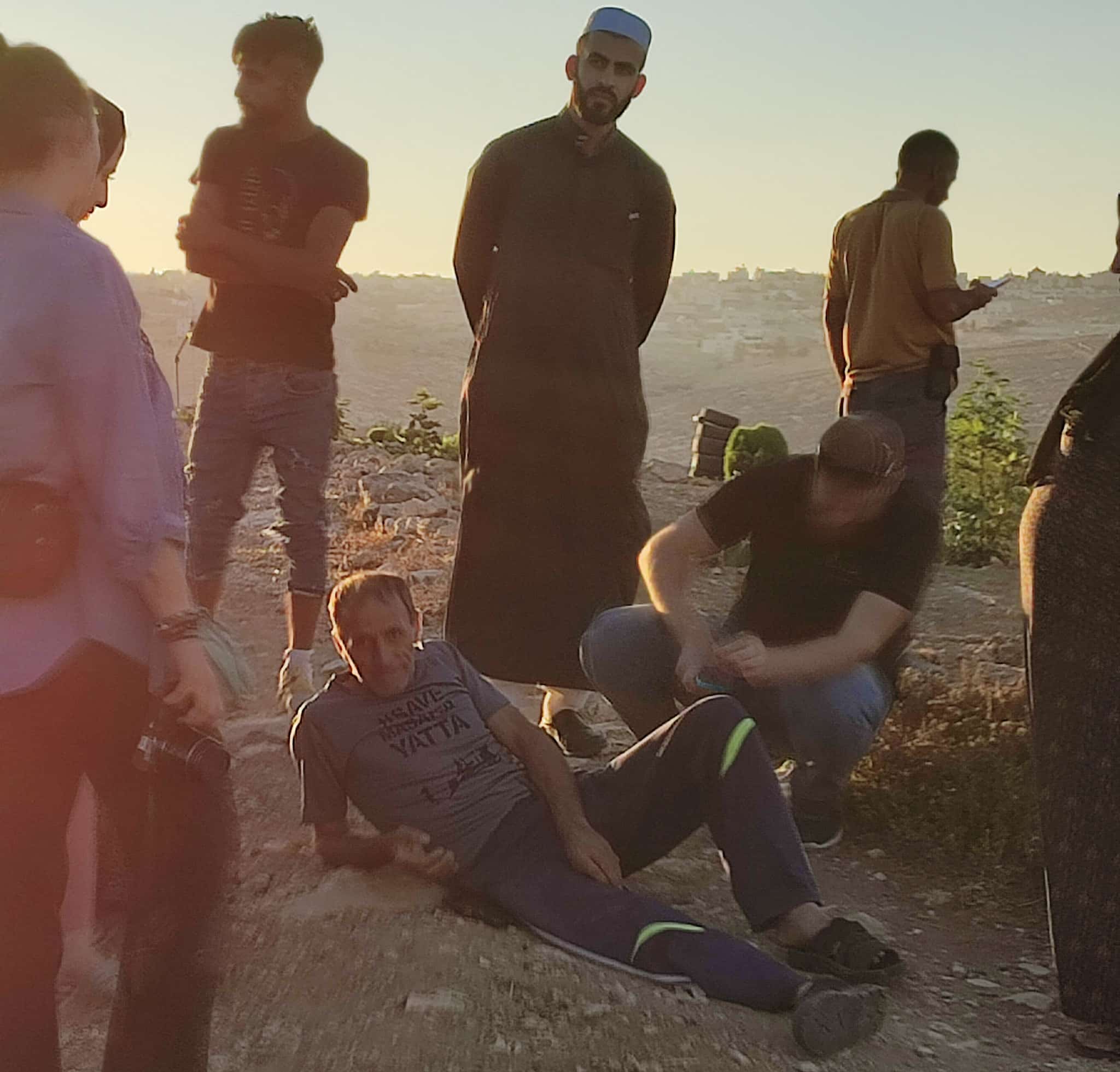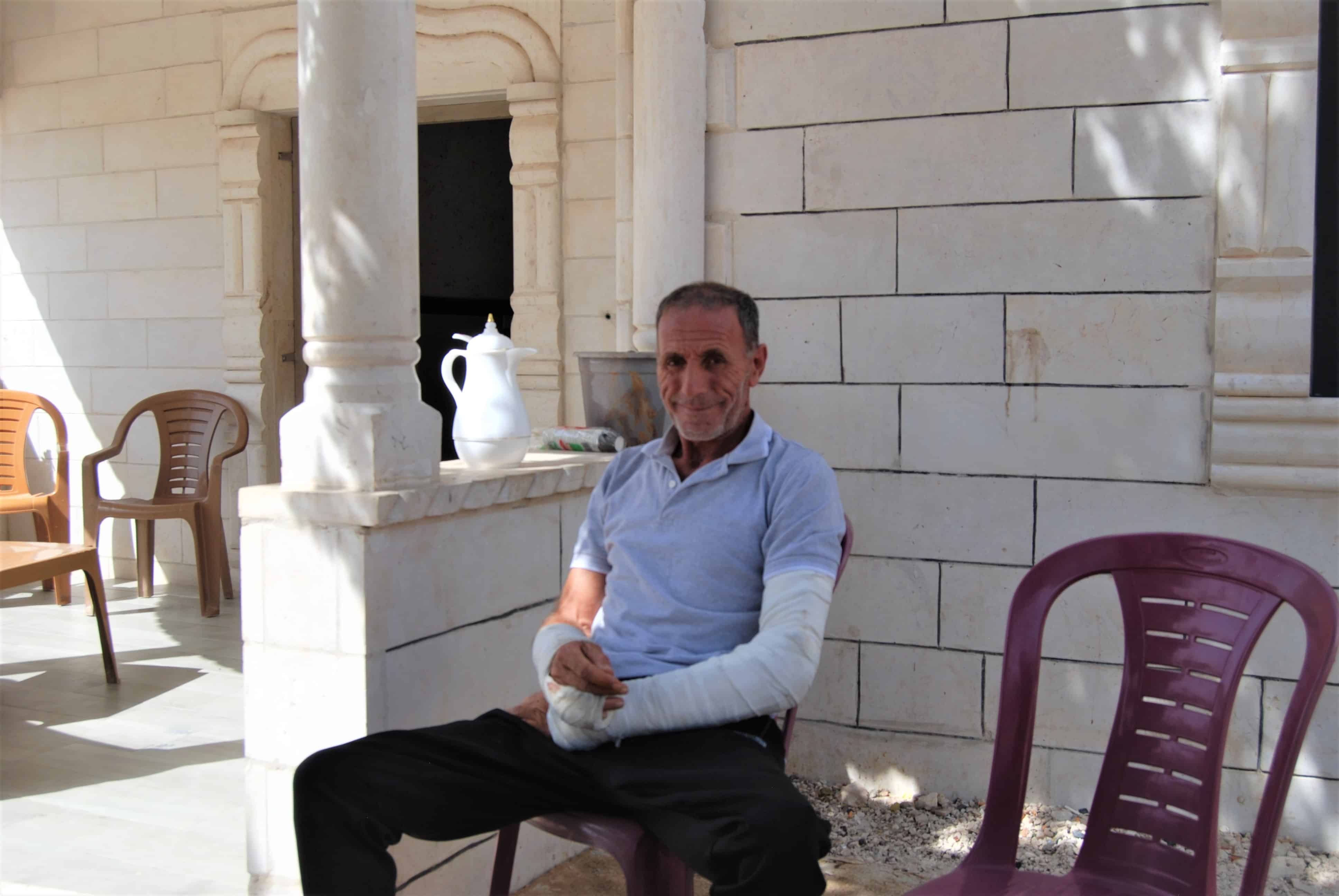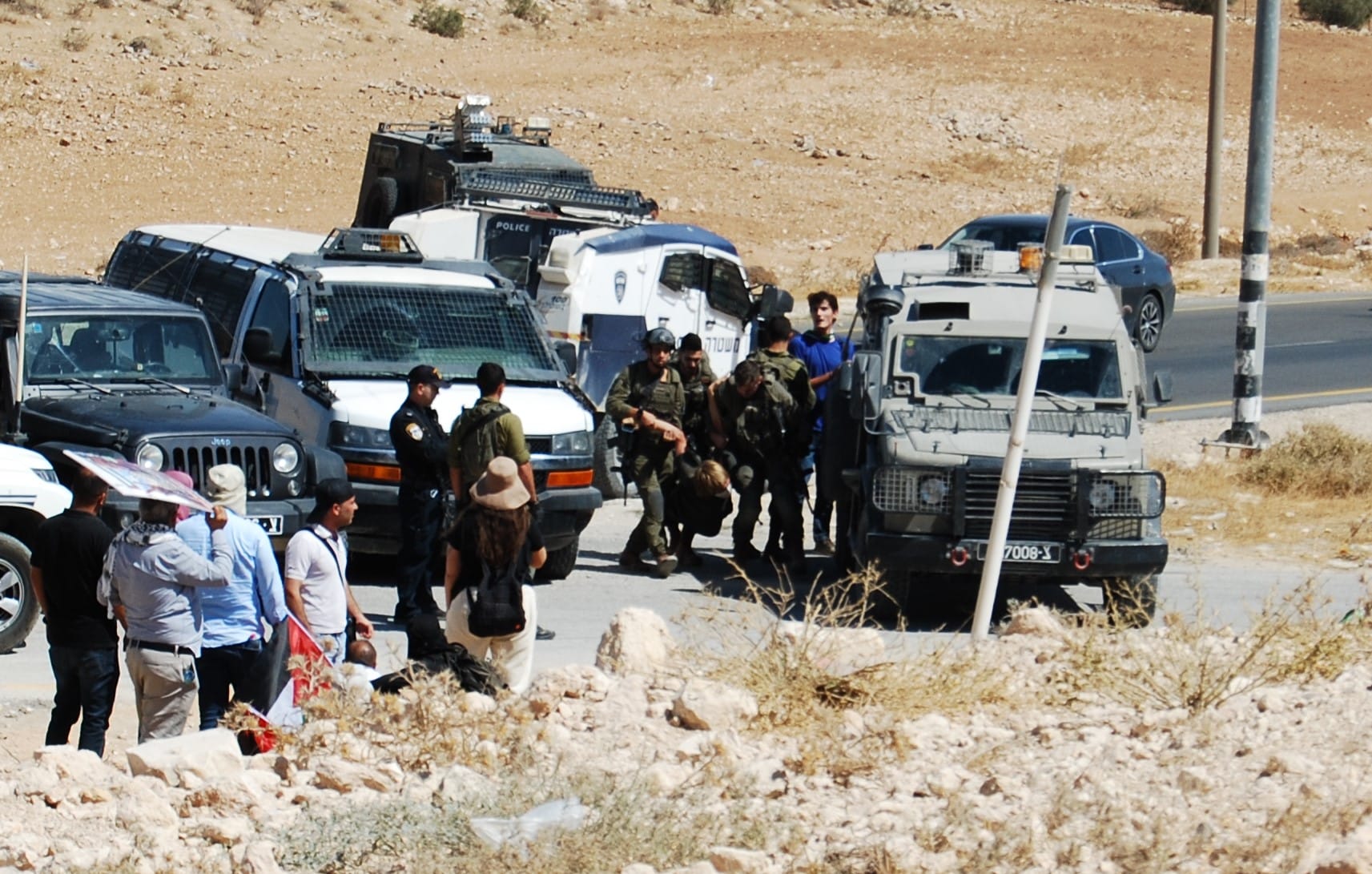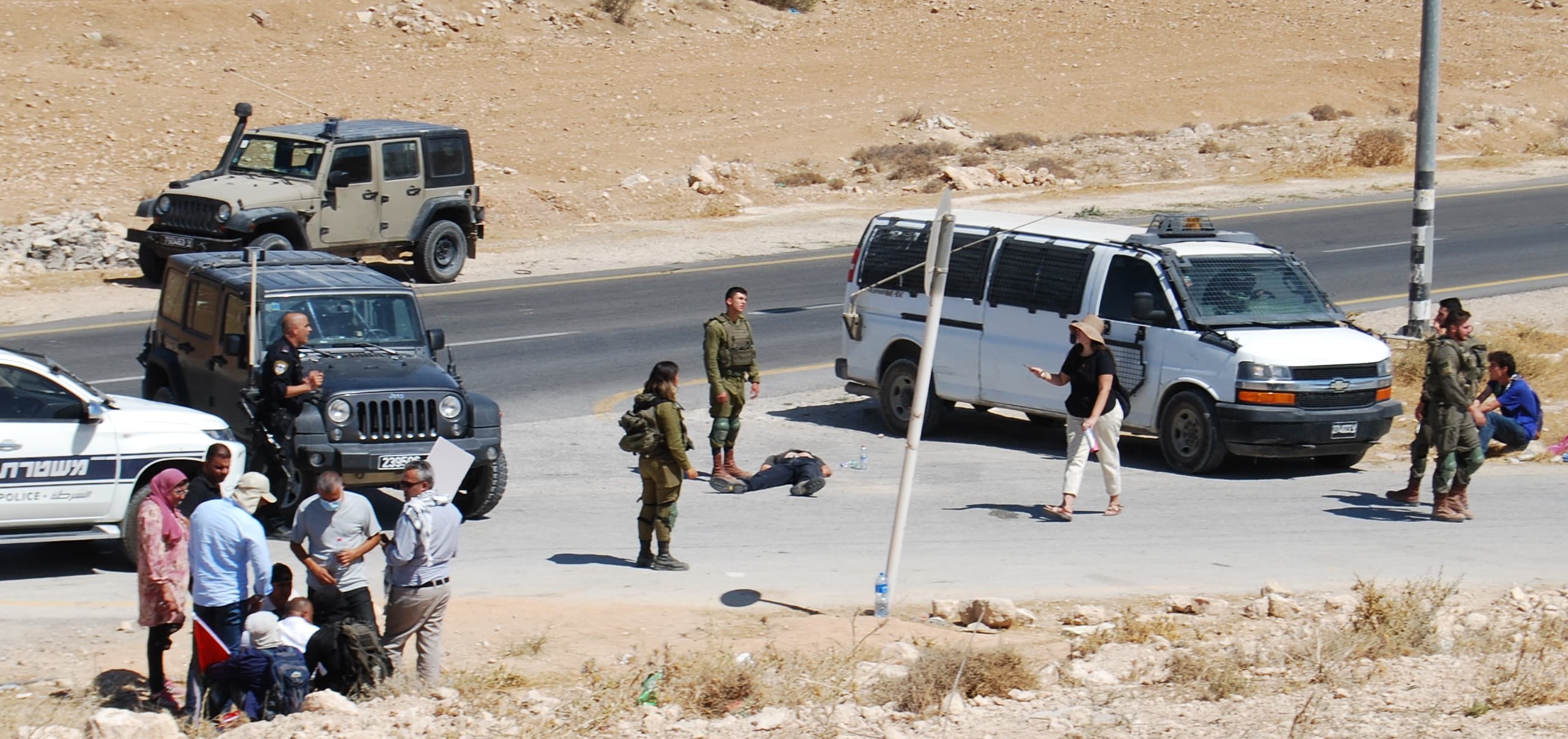‘I was released from prison, but I have to pay 10,000 shekels [around £2500] for a crime I didn’t commit and I am banned from going to my land for thirty days.’
Hafez Huraini, Human Rights Defender, Masafer Yatta
On Monday 12 September, human rights defender, Hafez Huraini was tending his sheep and working this land with his 18-year old son Mahmoud outside his village of At Tuwani in the South Hebron Hills, when five masked Israeli settlers from the nearby Havat Ma’on outpost arrived. Armed with a metal pole, they violently assaulted Hafez, breaking both his arms. A third settler fired shots into the air with a rifle throughout the attack. Hafez hit an attacking settler with his farming hoe and shortly after, the Israeli military and police arrived. Hafez was arrested for assaulting the settler.

Hafez Huraini shortly after the attack
Two other Palestinians were also arrested following the incident. One was detained for one day, the other for two days. No settlers were arrested. This case is typical of many in occupied Palestine where Palestinians rarely see justice for violent crimes committed against them. Cases of settler violence against Palestinians are seldom investigated and in the rare times they are, 92% of investigations are closed without conviction. We were with Hafez shortly after the attack, and met up with him again following his release from Israeli military detention. He recounted the experience.

Hafez Huraini shortly after his release
‘I was released from prison, but I have to pay 10,000 shekels [around £2500] for a crime I didn’t commit and I am banned from going to my land for thirty days.’
‘It was so hard for me at the beginning of my time in prison, because we watched the news on the television in the prison and it was incredible how the Israeli media fabricated my arrest into an amazing web of lies, which made me out to be a criminal who actually went into a settlement with the intention to kill someone. The propaganda was incredible and painted me as a crazed monster.’
‘Thank goodness we had video evidence of the settler attacking me, which showed that the whole story was lies. If it hadn’t been for that I might have been in prison a long time.’
‘I felt so grateful for all the support I received. It was so wonderful, and gave me hope: the people who stood outside the court in solidarity and all the people who came into the courtroom, including diplomats and supporters. Hearing the demonstrators outside and seeing people in the court gave me strength.’

Demonstration for Hafez Huraini in At Tuwani village

A protestor lies on the floor following a scuffle with the Israeli authorities at the demonstration for Hafez Huraini in At Tuwani village
‘The settler attack on me was really awful. As they came towards me I could see the look of the man who was attacking me. He really wanted to kill me. I could see it in his eyes. He had so much hatred, and of course I didn’t want to die so I defended myself. I was simply working on my land when they came. Nothing else.’
‘I think it is related to my history. I am against violence. I am a leader of non-violent resistance, but I have to say in the second the settler came for me I felt I had to defend myself otherwise he would have killed me. The settler who was with him had a gun which he pointed at me. I was so afraid he would use it.’
‘I go to work on my land almost every single day. But the settlers continuously come to harass me. They cut down my trees, but I never give up. I replant them, and I water my plants. So they are cross that I don’t give up, and they want to kill me because of it.’
Hafez was released after ten days in Israeli military detention. Ofer Military Court stated that the evidence, which included a video of the masked settlers approaching Hafez in his fields, presented a ‘complicated picture.’
Lawyers for Palestinian Human Rights report that nine days after Hafez was released, two settlers were taken into questioning for the attack but were subsequently released without charge or any further conditions. Hafez has since paid the fine, however although the thirty day ban on accessing his land has now expired, he is still forbidden from the area, which has been declared a closed military zone.
Take action!
-
Follow and support the work of Lawyers for Palestinian Human Rights, who have recently submitted a complaint to the UN Special Rapporteur on Human Rights Defenders concerning the attack, arrest and military detention of Hafez Huraini.
-
Join our URGENT Defend Masafer Yatta campaign here to call on the Israeli government to stop the illegal dispossession of Palestinians in Masafer Yatta.
-
Read more about the two-tier legal system for Israelis and Palestinians by visiting our law page.

